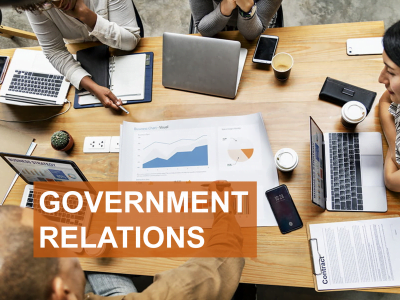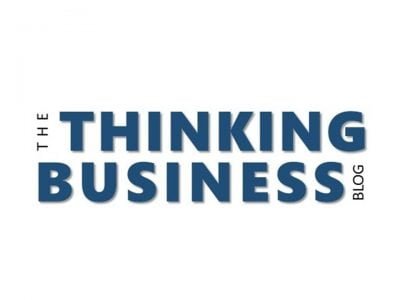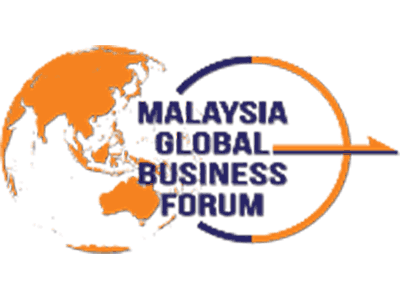SINGAPORE –
Media OutReach – 30 August 2022
– New global research by Harvard Business Review Analytic Services commissioned by
SAP SE (NYSE: SAP) has found that more than nine in ten (92%) of businesses in Asia Pacific (APAC) say that an adaptive culture and continuous employee upskilling is very important, though only 30% say their organisation is very prepared for unexpected changes or disruptions.
This is particularly important as APAC businesses increase their investment in people (62%), business processes like innovation or services (69%), and operations (43%) over the next year.
“Rarely in the course of history have so many disruptions affected so many businesses at the same time,” said Cathy Ward, Chief Operating Officer, SAP Asia Pacific and Japan. “Unforeseen challenges and new priorities, from supply chain resilience to sustainability, are putting pressure on companies to adapt. What this report shows is that, while agility and resilience are critical to prepare for the future, there’s still no single way to anticipate the changes the future will bring.”
These insights have been revealed in a new report released today, which explores the impact of planning and anticipation of the future on business success. The report, ‘
Anticipating the Future for Growth and Innovation‘, surveyed 442 global organisations across Asia Pacific, North America, and Europe.
Strategic planning focused on short-term horizons Globally, businesses are strongly focused on strategic planning, many are working to relatively short-term horizons. Almost three quarters (73%) of organisations say they plan for between one and five years into the future. Just one in five (20%) of respondents say their planning horizon is more than five years out.
The research also found that organisations share a few common priorities when planning. The top four priorities respondents selected were revenue growth and improving profit margins (55%), finding new customers, markets, and growth areas (51%), product and service innovation (47%), and retaining and attracting talent (46%). While APAC and other respondents across the globe are mostly aligned on priorities, one difference is in building a more resilient business ecosystem which was selected by more APAC respondents (42%) than respondents from the rest of the world (29%).
Agility and talent are key obstacles to anticipating the future Despite the priority on anticipating the future, there remain critical challenges many businesses face when planning. Slow decision-making was identified as the biggest challenge by APAC respondents (38%) when anticipating the future, while attracting the right talent (36%) and retaining staff (36%) were both raised as key issues.
Another problem identified by many APAC companies was a hierarchical disconnect when it came to planning. A third (32%) of businesses said that lower-level employees not being involved in planning was a core problem. That may be because the more senior a role, the more they’re encouraged, and rewarded, to have a proactive mindset and think about the future.
“Executives in APAC are much more encouraged (80%) and rewarded (55%) to have a proactive mindset about the future than most other roles,” continued Ward. “But while leaders are integral to building a future-ready business, they cannot do it alone. That’s why one of the most important steps a leader can take as they move towards becoming what we call the Chief Anticipation Officer is creating a culture of collaborative planning and forward-thinking mindset across the organisation.”
Investment in organisational culture is essential to plan for multiple different futures The culture a business nurtures and maintains has a disproportionately large role on success in planning for the future. Globally, more than half (57%) of respondents said that creating a culture that embraces change is an important organisational factor in anticipating the future – the most-selected response.
But building that culture requires a focus on talent acquisition, engagement, and upskilling. Organisations are placing high importance on the ability to attract new talent with needed skills (globally at 59%), aligning employee skill sets with the right roles and responsibilities (59%), and the ability to upskill current employees (56%).
The survey also found that technology and digital infrastructure are on the minds of many executives, though they may not be organisations’ top focuses. Strong digital infrastructure and cybersecurity skills (42%) was noted as the fourth most-cited answer when asked which skills and competencies most help organisations plan for the future. Additionally, lacking the technology an organisation needs for the future is also an important challenge to anticipate the future for APAC respondents (32%).
“This moment in time is an incredible opportunity for businesses to look to the future,” concluded Ward. “Continuous change demands flexible, forward-thinking action in three critical areas: how people will work, how we will do business, and how we will operate our organisations. By focusing on these areas, we can break away from traditional methods, better anticipate what’s coming next, and begin to drive new, successful outcomes in the future.”
The full
Anticipating the Future for Growth and Innovation report by SAP and Harvard Business review is available at this link:
https://www.sap.com/sea/cmp/oth/sea-rise-of-chief-anticipation-officer/index.html Visit the
SAP News Center.
Follow SAP on Twitter at
@SAPNews.
Note to editors: To preview and download broadcast-standard stock footage and press photos digitally, please visit
www.sap.com/photos. On this platform, you can find high resolution material for your media channels. To view video stories on diverse topics, visit
www.sap-tv.com. From this site, you can embed videos into your own Web pages, share video via email links, and subscribe to RSS feeds from SAP TV.
For customers interested in learning more about SAP products: Global Customer Center: +49 180 534-34-24
United States Only: 1 (800) 872-1SAP (1-800-872-1727)
Hashtag: #SAP
About SAP
SAP’s strategy is to help every business run as an intelligent, sustainable enterprise. As a market leader in enterprise application software, we help companies of all sizes and in all industries run at their best: SAP customers generate 87% of total global commerce. Our machine learning, Internet of Things (IoT), and advanced analytics technologies help turn customers’ businesses into intelligent enterprises. SAP helps give people and organizations deep business insight and fosters collaboration that helps them stay ahead of their competition. We simplify technology for companies so they can consume our software the way they want – without disruption. Our end-to-end suite of applications and services enables business and public customers across 25 industries globally to operate profitably, adapt continuously, and make a difference. With a global network of customers, partners, employees, and thought leaders, SAP helps the world run better and improve people’s lives. For more information, visit  www.sap.com.
www.sap.com.
This document contains forward-looking statements, which are predictions, projections, or other statements about future events. These statements are based on current expectations, forecasts, and assumptions that are subject to risks and uncertainties that could cause actual results and outcomes to materially differ. Additional information regarding these risks and uncertainties may be found in our filings with the Securities and Exchange Commission, including but not limited to the risk factors section of SAP’s 2021 Annual Report on Form 20-F.
© 2022 SAP SE. All rights reserved.
SAP and other SAP products and services mentioned herein as well as their respective logos are trademarks or registered trademarks of SAP SE in Germany and other countries. Please see  https://www.sap.com/copyright for additional trademark information and notices.
https://www.sap.com/copyright for additional trademark information and notices.

Services
Stakeholder mapping, analysis, engagement and communication needs to be detailed to avoid business losses or even worse, a crisis. How can you do this effectively to prevent failure? ...
Data-driven business decisions have never been as crucial, especially in this era. MGBF leverages off, technology, experience and market presence to aid businesses in making accurate decisions. ...
MGBF provides comprehensive strategic advice and results-focused solutions to solve clients' problems in business-government relations so they can focus on their core business. ...
A critical business challenge is meeting the right decision-makers and potential buyers through the best channel and platform. How will you improve your business competency? ...
Upcoming Events
In this episode of 'A Working Lunch with Nordin', MGBF's Nordin Abdullah and regional commentator Eddin Khoo will discuss the biggest threats and opportunities for businesses as we look to manage change in the South China Sea.
This MGBF Roundtable will feature thought leaders form Japan, Australia, Singapore and Malaysia dealing with the critical issues of manipulation of public listed companies and government and their financial impacts.
A series of networking sessions with various business associations and trade organisations exploring high-value opportunities for business leaders and entrepreneurs looking to build the relationships that matter.
This integrated event will include a forum, dedicated business matching, site visits, a gala dinner and a round of golf. Aptly themed, the focus will be on regional food security issues and trends in the context of the supply chain, agriculture technology and trade regulations and policies.
MGBF In The News
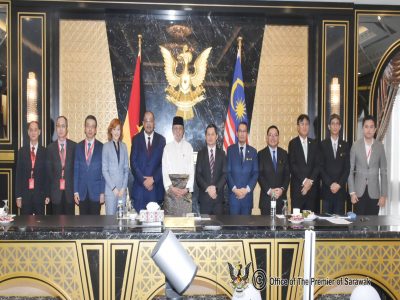
Planet QEOS and China Machinery Engineering Corporation (CMEC) are interested in investing RM10 billion to co-develop advanced Megawatt peak (MWp) agrovoltaic in Baram, to further boost Sarawak’s green energy initiative and food security. Sarawak Premier Datuk Patinggi Tan Sri Abang Johari Tun Openg was briefed on Friday by both the […]

Last week SPM results came out, 373,974 aspirants who have been waiting patiently over the last few months would now know their fate. Some 10,109 have received all A’s, the golden standard of academic success and the ticket to those looking to study the “more advanced” subjects in university. Proudly, […]

The classic knee-jerk reaction is to say, fire the coach, change the leadership of associations, and reduce the funding till they start performing better. This kind of negative reinforcement may work for kindergarten children, but we are dealing with high-performance adults – individuals much further along in their psychological and […]
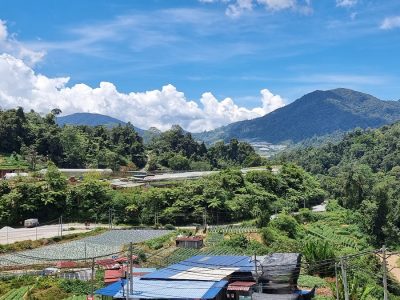
Since its earliest tea plantations in 1929, Cameron Highlands has grown to become a key player in the agricultural landscape of Malaysia, producing 40 per cent of all vegetables grown. Despite Malaysia shifting its economic focus away from agriculture, the industry remains imperative for food security and the livelihoods of […]

Although at first glance the travel industry and the agricultural sector appear to have nothing in common, they actually share more than meets the eye. The economic benefits of tourism to the agricultural sector can be multiplied several times over. “Tourism brings the end consumers closer to the source, which […]
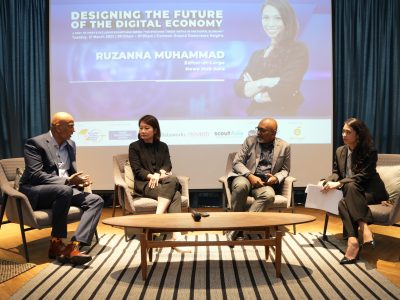
The Malaysia Global Business Forum (MGBF) recently held a high-level roundtable themed ‘Designing the Future of the Digital Economy’, attended by industry leaders and business associations. The guest of honour was Yang Berhormat Syerleena Abdul Rashid, the Member of Parliament (MP) for Bukit Bendera in Penang. The MP’s Special Session […]

The Malaysia Global Business Forum (MGBF) will be hosting a roundtable on ‘Designing the Future of the Digital Economy’ on 23 February 2023. It is the culmination of the first three MGBF Exclusive Roundtable Series titled ‘The Evolving Threat Matrix in the Digital Economy’ held throughout 2022. According to the […]

The Founding Chairman of the Malaysia Global Business Forum (MGBF), Nordin Abdullah, today spoke on Bernama TV’s leading English talk show, The Brief, hosted by Jessy Chahal, on the topic of a stable political reality and what that means for the Malaysian economy. Nordin said, “The first thing that it […]

More than 1,100 years ago, Muhammad ibn Musa al-Khwarizmi was developing the mathematical formulas that we know today as algorithms which now have become so intertwined with the business fortunes of global media giants and the very fabric of geopolitics. A series of recent high level international reports have revealed […]

KSK Land has been recognised by the Malaysia Global Business Forum (MGBF) for its role in attracting high net-worth individuals to Malaysia post-pandemic. The first challenge in investor attraction is “selling” the country. In the context of Asia, Malaysia is competing with some very established investment destinations. The second […]
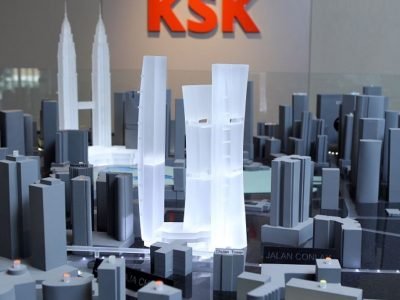
Malaysia, in particular Kuala Lumpur, continues to position itself as a regional centre to do business, educate a family and enjoy a global lifestyle. One company, KSK Land, has taken the lead in positioning itself and the city of Kuala Lumpur as a property investment destination for the global citizen […]
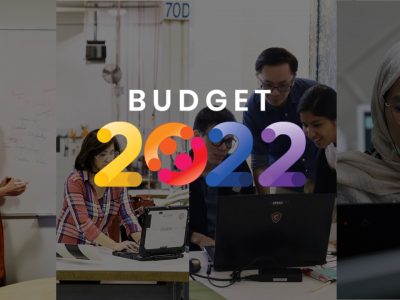
The upcoming budget represents an opportunity to build resilience in the critical sectors that will form the backbone of the country’s future-facing economic ambitions. This however needs to be achieved in the context of managing the community sectors most impacted by COVID-19 over the past two years. The Keluarga Malaysia (Malaysian Family) […]

Malaysia Global Business Forum (MGBF) has moved to support the creative economy as the overall economy moves into a recovery phase following the COVID19 pandemic. As a step in the direction of normalcy, the MGBF has agreed to host the art exhibition “I Know You’re Somewhere So Far” by one […]
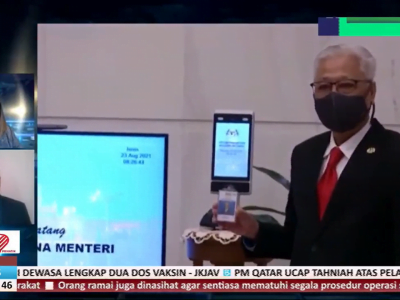
Congratulations to Datuk Seri Ismail Sabri Yaakob for taking up the mantle of the ninth prime minister of Malaysia. There is nothing normal about the situation; it could not have been scripted but it has kept the spectrum of media, mainstream and social, gripped. The first order of business for […]

In a stirring speech to the nation, President Joseph R. Biden, Jr. stamped his brand of leadership on the presidency, in his first act as the 46th president of the United State of America, it signaled several shifts. Perhaps the weather was foreboding with snow falling before the ceremony that […]

KUALA LUMPUR, 6 July 2022 – As the global economy continues to deal with unprecedented levels of disruption caused by the pandemic and the conflict between Russia and Ukraine, the convergence of energy security and food security issues has become a front-of-mind issue faced by policy makers and consumers alike. […]

KUALA LUMPUR, 23 June 2022 — Malaysia Global Business Forum (MGBF) ties up with scoutAsia to ensure that businesses are equipped with deeper regional insights. The past two years has seen a massive shift in the way businesses are conducted with digitisation, digitalisation and automation continuously being adopted to improve […]
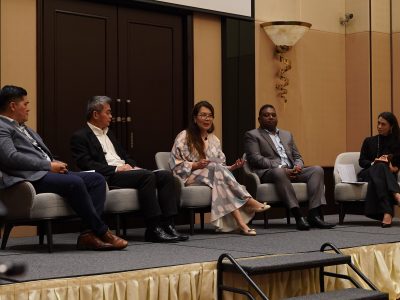
KUALA LUMPUR, 25 May 2022 – The Malaysia Global Business Forum (MGBF)’s exclusive roundtable on ‘Security Concerns in Critical Value Chains’ was held in a hybrid setting yesterday at the Eastin Hotel Kuala Lumpur. The guest of honour was Yang Berbahagia Tan Sri Dato’ Seri Rafidah Aziz, former minister of […]
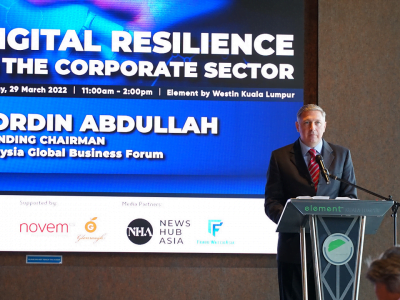
We live in the age of crisis. At the heart of any crisis is the threat of rapid change. Change too deep or too wide that the current coping mechanisms for an individual, corporation or government are unable to remain resilient. An unwelcome paradigm shift, like the proverbial spider, that […]
![]() www.sap.com.
www.sap.com. ![]() https://www.sap.com/copyright for additional trademark information and notices.
https://www.sap.com/copyright for additional trademark information and notices. 



